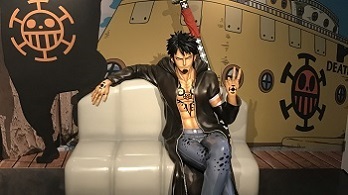Culture Clash: Japan's Manga vs American Comic Books
Posted:
Comic Books & Manga

While some people may not see the difference between Japan's Manga and American Comic Books (my mom), there are distinct differences between the two artworks that differentiate them from one another. As the leading tour & travel agency for Anime Tours, we wanted to highlight a few of the interesting differences between the two styles. This article isn't to say which one is better (although when it comes to reading online, I do say American comics win), rather, to highlight the differences that make both styles unique, entertaining, and still an option for my in-flight entertainment. While there are some who may think one is superior than the other (hey, there is a shrine for anime in Japan), with so many similarities, the differences they have aren't enough to merit which is better.
To make this a little easier, we will be focusing on the "Super-Hero" Genre of comics and "Action/Adventure" of Manga. It's not that I don't want to talk about slice of life works or a lot of the other genres, rather, it is easier to focus on what most people already know to make the examples work a bit more clearly. Plus, comics & manga both cover such a wide range of topics and stories so let's keep it simple.
Format & Distribution
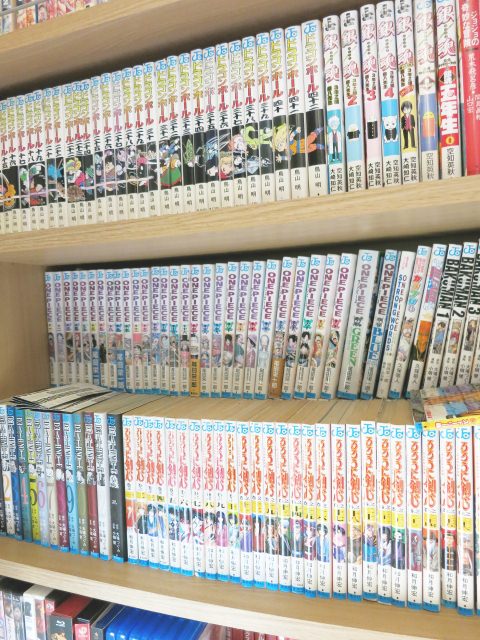
One of the biggest differences right away you will notice between a manga and a comic book are the many differences in style and distribution. For starters, most manga are sold either as a tankobun (book) or in a weekly magazine. Either way, they are usually printed in black and white and are fairly clunky, almost like a digest. American comics are distributed and styled in a different way. American comic books are usually sold as magazines (est 32 pages) with colored print. There are also collected editions (Omnibus; kind of like a manga series) which have a subset number of issues from the series, or a special story arc. In short, American comics are usually colored and come in a variety of different options between individual issues, collections, graphic novels, etc.
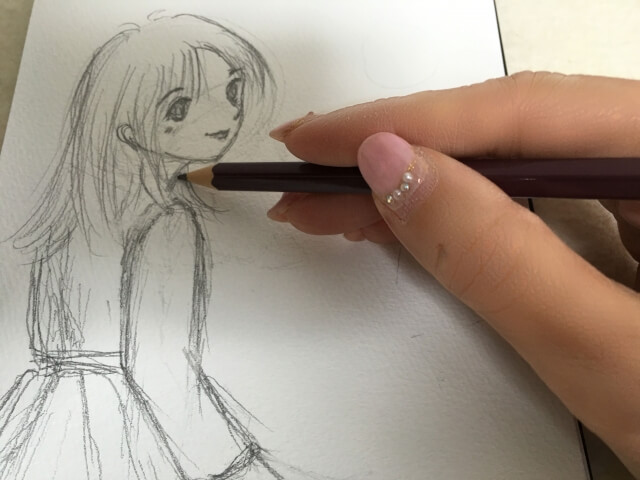
One distribution difference you may also notice is that Manga tend not to be colored, where Comic Books are. Some manga do include a few colored pages, but usually they are distributed in black & white (regardless if in a collected work or not). If they start uploading manga with color, I will happily retract my earlier statement about Comics being better to read online over Manga. Besides the difference in color, one interesting thing about manga vs comic books are how Japanese manga are printed in a weekly magazine, which allows for someone to read multiple stories and all the different misadventures the characters have. American comics still haven't picked up on this concept, though each comic release is longer than a standard manga chapter with more details (and color). If you're like me and don't like the black & white graphics of manga, you can always wait a bit for an anime adaption (which happens often for popular works).
Characters
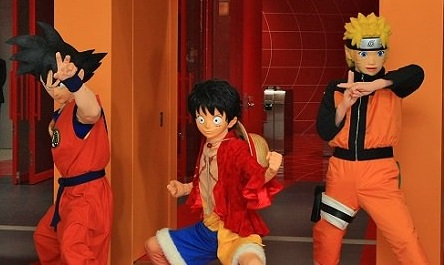
One thing I noticed right away between Japan's Manga heroes (or any story that has competition) and American Comic Book heroes (like those of Marvel or DC), is that Japan's characters constantly get stronger, while the American counterparts tend to retain their same level of strength, seldom becoming stronger. If a hero in a comic book does get stronger, usually the changes don't last very long. For example, lets look at the famous "Superman v Goku" debate. First of all, if you don't know who they are, I don't know why you're still reading this. Second, there are many iterations of Superman, but only one of Goku. Yes Dragonball has had spin-offs (some we try to forget, looking at you GT), but there are no alternate Goku's or parallels. Now, if we pit both heroes against each other when they debuted, I doubt Goku could ever win. Now flash forward to where we are today. Goku in Super Saiyan Blue will take out Superman because of how much stronger Goku has become over the years. Don't believe me? Find a comic of Superman fighting a god, only to result in being 2 punches away from wiping out the entire reality. Okay sure Thanos has done stuff like that but it quickly gets dismissed and is no longer a strength he has. It's also fair to note while some American Heroes do get massive power upgrades (Spider Man has had a few, Thor recently became a Herald of Galactus, and Capt get's to lift things besides his hammer time to time), they won't always last or stay in the main-stream universe. Goku is still that strong and carries it with him for the rest of the series.
American Heroes vs Japanes Heroes
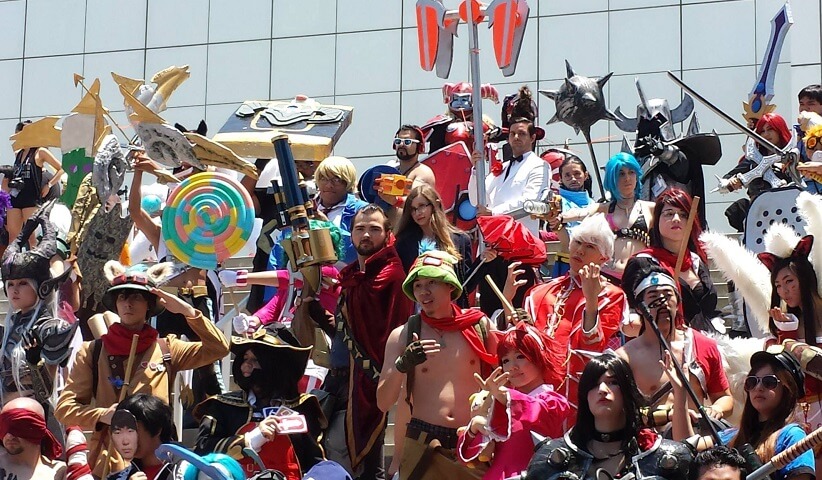
Another interesting thing to point out is the longevity of American Comic Book characters vs Japanese Manga heroes. Let's look at a timeline for a second with one of my favorites, Captain America. He first appeared way back in 1941, and people still go out and buy his comics and watch his movies. Whenever things become to stagnant, things are refreshed, rebooted, and redone for better or for worse (Okay Cap being a Hydra agent falls under the for worse category). This is usually done in peculiar, very sci-fi ways. For example, Marvel reset their universe with their Secret Wars event which led to the overlap of the multiverse. This is just one way we see characters & concepts being refreshed for new readers to jump in the fun. Alternatively, Luffy from One Piece debuted in 1997 and is still looking for the treasure. The point is, American Comic heroes never seem to die, where a Japanese Manga will run as long as it can, conclude the story, and maybe, just maybe, get a spin-off instead.
Likewise, one subject American comics seem to have that Japanese stories don't use as much is Replacing Heroes or new characters taking familiar titles. While Goku leave the fate of the Earth to Gohan for a while, a protagonist in a Japanese manga doesn't usually get replaced. While I can think of one or two in Japan (re: Duel Masters & JoJo's Bizarre Adventure), there's way more in American Comics. Whether it's Thor passing Mjölnir, Captain American handing over his Shield, a new guardian of the Green Lantern, Batman getting a new Robin, new characters taking familiar names along the way is another reason to love the works of American Comics. Some manga are making note of the trope, like in My Hero Academia, though maybe it's because of the great cosplay (like the image above to the left) out there that makes manga authors a bit hesitant to replace their main character.
Stories

The final comparison of these two styles comes down to their stories. There are many things I want to cover, but the main two are the stories length and the stories shared universe. When it comes to story length, Japanese Manga take the cake. Story arcs can sometimes continue for long periods of time, either with a threat that takes chapter upon chapter to beat just one of the many enemies, a person who needs being rescued, whatever it is, Japanese Manga tend to have longer stories compared to their American counterparts. Yes, there have been plenty of drawn out arcs in Comics, but with the resetting of universes, new heroes taking over, time-travelling, and interference from cosmic powers like the Infinity Stones, American Comics seem to cover more arcs than in Japan.
American Comics
While some may argue American Comics have long story lines like one of my personal favorites, "Civil War", American Comic Books do something a little different when it comes to long story arcs. American Comic Books like Marvel or DC have a shared universe between all their heroes. This means what Batman is doing in Gotham could have consequences for Superman, Wonder Woman, and even the Martian Man-Hunter. While Japanese manga are printed in a weekly magazine, there's almost no overlap or cross-overs. Maybe an occasional issue that ends up being hyped up to the max, but crossing of characters during a story is something you don't usually get in a manga, but aren't out of the ordinary in a comic book. Heck, even when it's different publishers (think "Marvel & DC" or even "DC & Power Rangers"), there are still cross overs.
No matter how you look at the differences, both are filled with interesting stories, strong themes, and are a great hobby to get into. Now excuse me as I finish reading the final battle over here!
Original Post: Monday, June 20, 2016; Updated with new info & photos: 1/13/2020




